Performance Management
Course Overview

Training course is designed to introduce the delegates about the major principles of performance management process and it will help managers and team leaders recognize their role and contribution to effectively manage performance and conduct at work.
A link can be made to the organization’s policies throughout the course to help embed effective performance management techniques and practices into an existing framework.
The program is designed to help employees set and meet their goals and improves the employee manager relationship. This is key in keeping an organization and employee aligned, which improves performance and productivity, is Performance Management.
Goal of Course:
The program provides the participants to understand the performance management cycle with all its elements related to strategy all the way to deliver effective communication related to the objectives.
Duration:
2 Days
Language:
English
Training Objectives
- Create common understanding of how performance management can be utilized to elevate the individual and team performance
- Understand what MBO means how to link it to the individual performance
- Set appropriate, effective goals using the S.M.A.R.T. technique of goal setting
- Learn how to cascade objectives among team and department using the performance management framework
- Steps needed to build effective performance appraisal session
- Deploy a successful methodology for developing and implementing performance metrics
- Address the human factors of implementing a performance measurement system including steps needed for:
- Calibration
- Performance metric
- Setting performance standards
- Providing Performance Management Appraisal Using “SAGA 3 Stages” Approach
- Understanding KPI’s and the steps needed to communicate KPI’s
- Giving effective feedback session post performance review
- Develop individual performance plans for improvement
Module Outlines
Module 1: Performance Highway
- Opening & Ice Breaker
- Case Study: Introduction about Performance Management and its history
- Key characteristics for high performing Team
- Role of the leader in driving performance culture
- Core elements, principles and benefits of an effective performance management framework
- Balanced Scorecard mechanism and framework
- Team work activity, and group presentations
Module 2: Goal Setting in Relation to Performance tools
- The Importance and Value of Organizational Goal Setting and linking them to KPI’s
- Understand the nature of goals and objectives and why they are important (SMART & SMARTER) and defining managing by objectives
- Objective setting process
- Measuring KPI’s and allocating metric accountability
- Case study and group presentation
- Using the Balanced Scorecard to Translate Goals into Activities
- Current methods of measurement and common failings
- Align Performance goals with job and department goals
Module 3: Setting Performance Measures
- Performance management cycle and purpose of the annual performance review
- Organizations’ performance appraisal process
- Setting and communicating performance objectives and cascading objective via departments, teams and individual
- Identifying core behaviors that drive high performance
- Case study, quiz and group presentation
Module 4: Evaluation & Performance Management
- The Link between goal setting and the employee performance reviews
- Reviewing different levels of performance
- Objectively assessing and rating performance
- Performance evaluations reviews & Rating; Calibration
Preparation for Performance Evaluation meeting - “SAGA 3 Stages” approach to communicate performance targets
- Preparing Personal Development Plans (PDPs)
Module 5: Feedback Approach & Development
- Structuring performance review meetings
- Elements of good feedback sessions
- Giving constructive and motivational feedback
- Difference between developmental feedback and critical feedback
- Overcome internal barriers while giving feedback
- Provide Personal Development Plans (PDP) based on the individual gap for elevating performance level
Module 6: HRMS
- HRMS-PMS Module
Customized Learning
Leap To Success is offering a variety of learning options to meet current realities and can be adapted to suit your business needs. These options include variants of online, blended and on-site course formats.
Face To Face Learning
Enabling you to have a face to face interactive and engaging learning experiences led by renowned industry experts and thought leaders with extensive practical experience who will employ a variety of interactive learning techniques, including short high-impact videos, case studies, assessments, role plays, in addition to on-going support.
Virtual Learning Labs
Interactive online learning held in real-time using Zoom and are led by international subject matter experts who incorporate case studies, breakout rooms, guided practice, simulations and discussions to maximise your learning experience.
General Methodology
Similar to any L2S training program, this program offers an interactive learning experience in which will allow the delegates to reflect on their learning through an informative, indulging, and fun classroom experience. The design of the training session focuses on the following attributes.
Concrete Experience: The delegates will learn by doing
Reflective Observation: Reflecting on the newly experienced skill-set
Abstract Conceptualization: Developing deeper understanding to the learned concepts
Active Experimentation: Providing the delegates with realistic tools that can be tested in the real life
Specific Methodology
To effectively execute this program and to ensure that the end result is being achieved L2S specific training methodology in Coaching for performance program is as explained in the below stages:
Stage 1: Designing the Training Event
During this stage L2S will be assessing the learning needs from the determined objectives. Simultaneously consider practicality. In addition, L2S will consider the group’s learning style in order to identify which style of learning is most suitable. During this stage L2S as well will capture a real problematic incident reflecting on the real work environment.
Stage 2: During the training
The course design is based on interactive facilitation, training games, training videos, role-plays, group discussions, group brainstorming sessions.
Stage 3: Post the Training
Post the training program delegates will be given an action plan along with a worksheet that includes the key learning points. Also, L2S will design a Leader’s Tool Kit (LTK) for this particular module. The LTK helps the direct managers to evaluate the key learning points discussed during the training and allows the leader to monitor the progress of his/her employees post the training course.
Activities Brief
What Makes a Good Leader?
Leadership is absolutely key when it comes to setting goals, motivating staff, managing people and achieving results. Unfortunately too many leadership courses focus on extraordinary, inspirational leaders on the world stage. Tim in Accounts is never going to have the gravitas of Nelson Mandela, Amitra in Admin is no Angela Merkel. Nevertheless if all staff understand basic, leadership qualities it can make a real difference to their own everyday performance: presenting ideas, instigating change, pouring oil on troubled waters, showing objective judgement. This pack challenges many of the above ideas and puts leadership in a new light.
The 5 Questions Every Leader Should Ask:
This fascinating learning experience is Based on the book, Leadership Made Simple, by Ed Oakley and Doug Krug the program introduces a proven process called The Framework for Leadership™, consisting of 5 questions, which, when asked in a specific order, enable project managers to engage their team in finding and implementing effective solutions. This structured workshop includes individual self-assessment on Leadership Style, Communication Style and Social Style. All the Assessment are based on Daniel Goleman EI Module.
Sign Up For the Course
